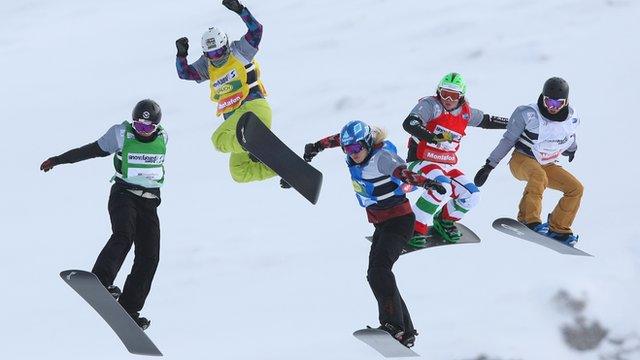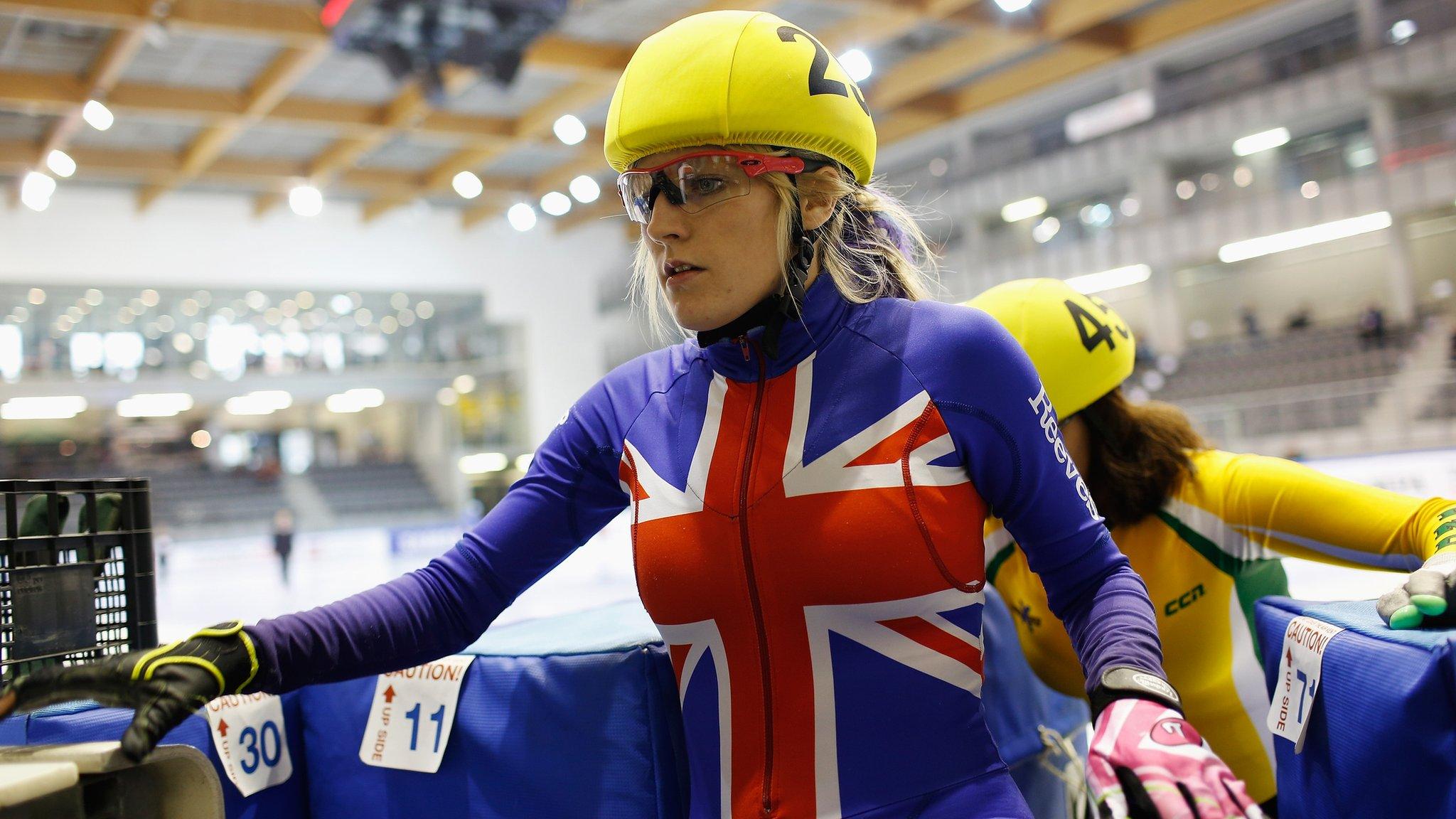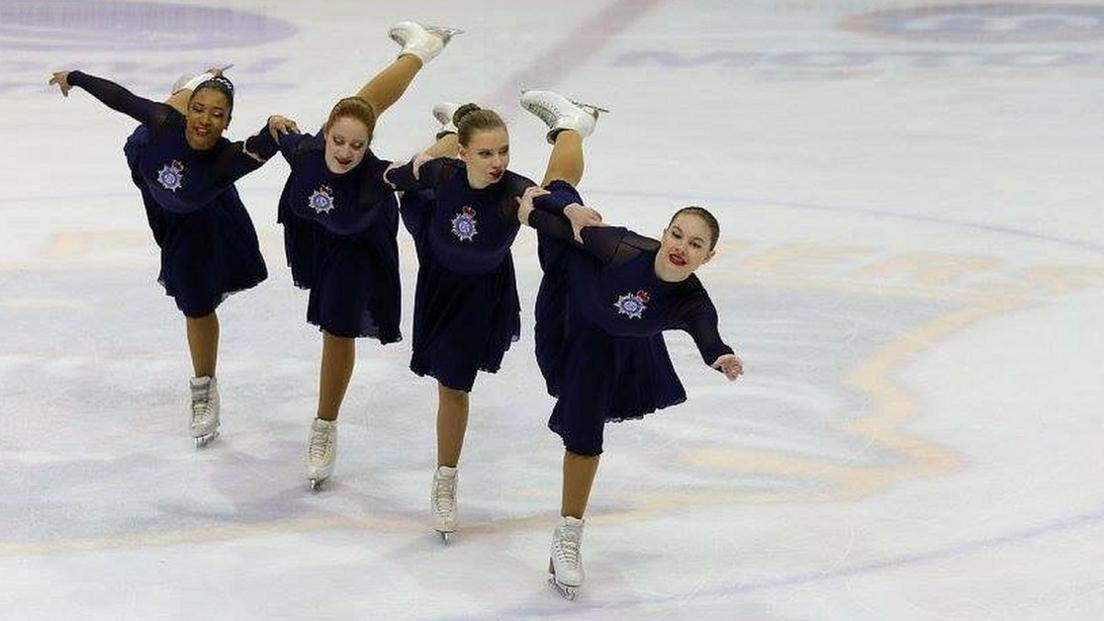Sochi 2014: Jayne Torvill on her sporting life
- Published
torville V2
Jayne Torvill is a retired British ice dancer. She won gold at the 1984 Winter Olympics in Sarajevo, external and bronze 10 years later, both with partner Christopher Dean. The duo made history in Sarajevo, where they received 12 perfect 6.0 marks for their free programme, performed to Ravel's Bolero. Here Torvill talks to Get Inspired about her sporting life.
The first time I went to the ice rink was on a school trip. I was eight or nine. Luckily for me, the teacher started taking us regularly. It was a Friday evening for an hour and a half.
As soon as I was on the ice, I really enjoyed the feeling. The glide of the ice, the feel you could get. I was like a sponge. I just enjoyed it and wanted to get better.
It was an expensive sport and I started on hired skates. I had to wait for lessons to see if I was still interested. My parents then bought me a second-hand pair of skates and I had a 20-minute lesson each week, which I loved because then I was learning. It taught me to work on my own.
As a child I was really quite shy. On the ice I felt like someone else; I had a different persona. Over the years it just brought out a different personality in me and lots of confidence.
There was a tall, beautiful lady whom I looked up to and wanted to be like. She was Thelma Perry, my first coach. She used to demonstrate beautifully. She taught me figure skating and I had a male coach, Len Saywood, who taught me dancing.
When I first started it was never in my mind to go to the Olympics. I was just excited to come to the ice rink to skate, to have my lessons, learn new things and get ready for test competition. There were no thoughts of the Olympics at that point.
I watched other skaters on TV. I never dreamed I would ever be there. It was something I didn't think would ever happen to me.
The first time Chris and I skated together was an early morning. We could get private ice time. It wasn't like the bells rang and lights went off, but I enjoyed the session.
My parents were always quietly supportive. They were modest about what I'd achieved and they never wanted to interfere in any way.
Chris and I were in our early 20s when we realised we had a chance of a medal. In 1980 we were in the GB team at Lake Placid and finished in fifth place. In 1981 we won the European and World Championships.
We made the big decision to give up our jobs and concentrate on skating full-time. It wasn't a good time to give up your job. We were seeking sponsorship so I wrote to Nottingham Council, who said they would do it for the next four years. It gave us the opportunity to train and not worry about money. We could eat, sleep and skate.
Chris and I always chose our own music. We were taught by Janet Sawbridge to like the music and feel the music. From early on we looked for our own music and did our own choreography.
We were world champions and had to push ourselves. We decided to start slowly and let it build. We realised this is what the Bolero did.
It's really hard to describe the feeling of the Olympic performance in Sarajevo. It feels like a dream sequence. It was such an emotional moment and it felt like I was looking down on it.
I do remember the moment when all the sixes came up. We had so many flowers that people were giving us, we took ages to get off the ice and the judges put the scores up. When they put the second scores up there was a massive roar. It was such a relief to finish the routine. We couldn't have skated it any better on the night.
I didn't think that a young girl from Clifton would ever be Olympic champion. Never stop dreaming. My dream started small and just got bigger and bigger.
To win an Olympic medal takes a lot of hard work. There is also a lot of luck and being in the right place at the right time. But the harder you work, the luckier you get.
- Published8 January 2014
- Published10 January 2014

- Published22 January 2014

- Published18 January 2019
